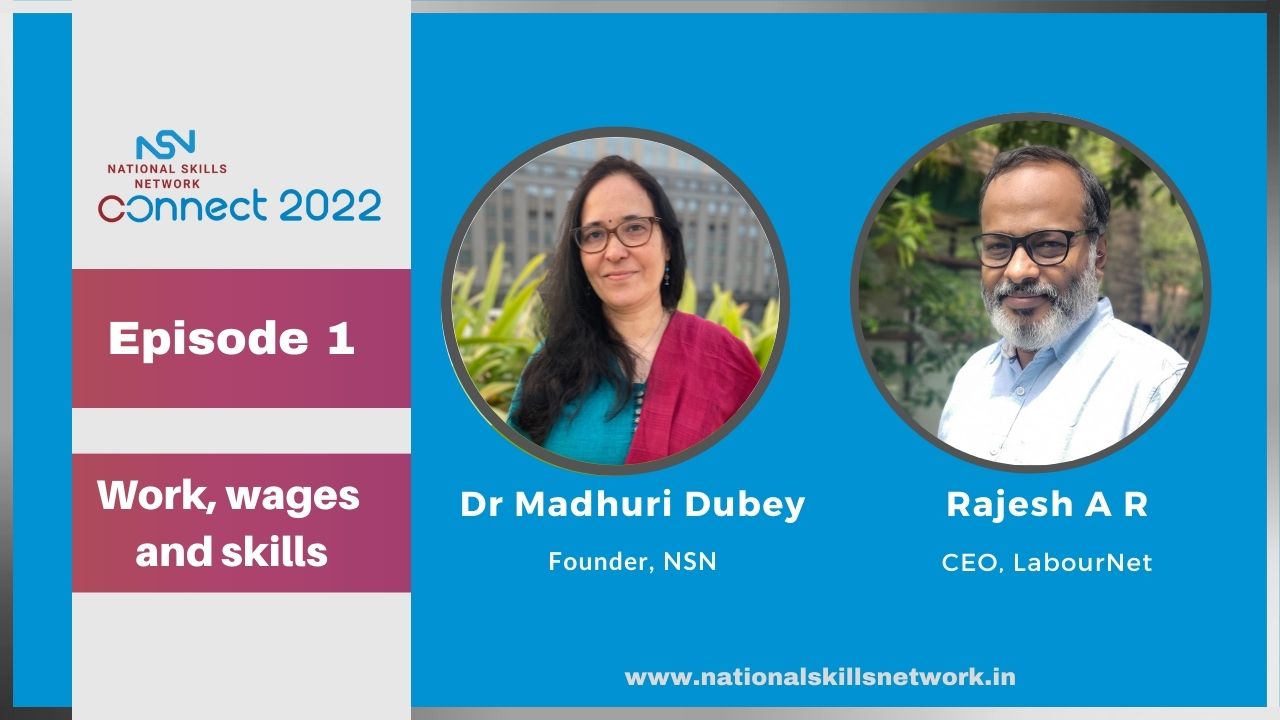Team NSN has launched the series of NSN Connect 2022 on Re-igniting the skilling landscape in India to learn about these areas. The esteemed guest of the eight-episode series is Mr. Rajesh A R, CEO, LabourNet who is a thought leader and domain expert who will share his experience and expertise on various aspects that are crucial to re-ignite the skilling landscape in India.
Through NSN, we brought several conversations with people who contributed to the skills, education and entrepreneurship landscape in India. NSN raised the issues of unemployment in youth and looked at a few important action points that can be implemented with the outcomes we desire.
The first episode of the series broadly focused on Work, Wages and Skills. Here is the excerpt from the episode. To watch the full episode, please visit our YouTube channel
Re-igniting the Skilling Landscape in India – Episode 1 – Work, Wages and Skills
In this launching episode, we invited Mr. Rajesh A R to learn more about the current scenario of employability, entrepreneurship and skilling to help you understand and resolve the underlying issues of unemployment.
Talking about the topic, Mr. Rajesh A R conveyed the message of making skills aspirational and how they can be connected to the wages, education and labour market. He stressed three big transitions in which a person transforms from being unemployed to a nominal wage and finally to a decent wage job. A nominal wage is based on various parameters which could be geographic, socio-economic development and many other things.
 The three transitions not only enable a particular person to achieve economic empowerment but also achieve social recognition. Social recognition is as important as economic empowerment.
The three transitions not only enable a particular person to achieve economic empowerment but also achieve social recognition. Social recognition is as important as economic empowerment.
When we talk about social empowerment, India does not have a problem with unemployment. The unemployment percentage has been in the ratio of 5-6% but our problem is productivity because the social recognition of that particular wage is not aligned as required. So, to get social recognition and get into the labour market, one needs to know what kind of courses he/she should take and also might have to migrate from their comfort zones. Also, one needs to be updated and aware of the current changes and adapt to them.
A person is assessed based on his/her knowledge skills and behaviour, general skills etc, wherein RPL comes into existence and that decides whether the person moves to the next level that is to the decent wage level. RPL makes sure that the person is trained and moved to the world of upskilling and digital world. Also, one needs to acquire the skill of upward mobility leading to having multiple skill sets which can further provide different jobs in multiple sectors.
Three action points
- Students should know where the wage premium lies
- Knowledge to acquire the right skills to get a particular wage premium
- Identify companies that recognize the particular skill set or wage premium
Action points from training centre perspective
They need to have a training partner and corporate relationship for proper placements and look at what kind of jobs are available for their students based on their skill sets.
We need to learn about the connection between skills, work and wages and also try to see how the big picture is formed as we talk about skilling and connect with human capital development. Unless we link wages to a social hierarchy of degrees, we won’t be able to enable skilling. It may enable economic living but not digital living.













